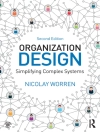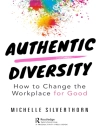The phenomenon of global organizations reminds us that cross-cultural management is more prevalent than ever. While it may not be possible to develop in-depth knowledge of all cultures, a person can develop a way of thinking where they integrate culture in all of their deliberations, decisions, and behaviors. Such an approach is transformative and involves adopting a cultural mindset, understanding culture’s power as a frame of reference, and developing a new way of thinking.
The book The Cultural Mindset is based on Dr. Nahavandi’s years of teaching, researching, and consulting with many businesses on cross-cultural issues. Built around a think-know-do model, the text enables readers to adopt a cultural mindset that will effectively guide their thinking and behavior as future managers. Through case studies and self-assessments, the book allows students to develop a broader view of culture that is beyond learning skills and competencies. Additionally, by focusing on culture in general, the book allows readers to address both national cultural issues, such as how to work in another country or manage a multi-national team, and diversity issues, such as the glass ceiling or discrimination in the workplace. The key underlying theme for both topics is how culture, national or group-related, impacts our perspective – what we value, how we think, how we behave, and how we manage people effectively.
Each chapter will include a focus on both informational and transformational learning through:
- Cases and examples that will question assumptions and emphasize applicability
- Self-assessments to make the concepts personal and relevant, and encourage self-reflection
- Examples to help students understand those concepts
- Specific exercises and/or reflections to help students apply information to their own personal and professional life
Cuprins
I. INTRODUCTION
1. The Impact of Culture on Managing Organizations
2. The Cultural Mindset
II. THINK – YOUR CULTURAL PERSPECTIVE
3. The Role of Cognitive Processes in Cross-Cultural Management
4. Views of Culture and Acculturation
III. KNOW – GROUP CULTURE AND DIVERSITY
5. Managing Diverse Groups
6. Gender in Organizations
IV. KNOW – MODELS OF NATIONAL CULTURE
7. Culture as Value Orientation
8. Cultural Dimensions In Management and Leadership
V. DO – LEADING MULTI-CULTURAL ORGANIZATIONS
9. Leadership and Culture
10. Motivating People and Leading Multi-Cultural Teams
11. Managing Organizational Strategic Forces and Processes
12. Crossing the Threshold: Developing a Cultural Mindset
Appendix A. The Development of the ICMI
Appendix B. Sample of U.S. Immigration Policies and Practices
Appendix C. Brief Timeline of events and milestones related to slavery and civil rights in the U.S.
Despre autor
Dr. Afsaneh is professor of Management at the Knauss School of Business at the University of San Diego (USD), and Professor Emerita at Arizona State University. She is the founder and principal investigator of the Cultural Mindset Project and the Individual Cultural Mindset Inventory, a cultural assessment and training program used widely to help leaders work more effectively across cultures.She has a BA in Psychology and French from the University of Denver, an MA and Ph D in Social Psychology from University of Utah. Prior to coming to USD in 2013 to be chair of the Leadership Studies Department, she taught at Arizona State University for 26 years in the Business School and in the School of Public Administration. She has held several administrative positions including director of the MBA program at ASU’s West campus and associate dean of University College and of the College of Public Programs at ASU. She has authored several textbooks including The Cultural Mindset: Managing People Across Cultures (2022, Sage) and The Art and Science of Leadership (2024, Pearson) now in its 8th edition, , as well as numerous articles and chapters about leadership and culture.












